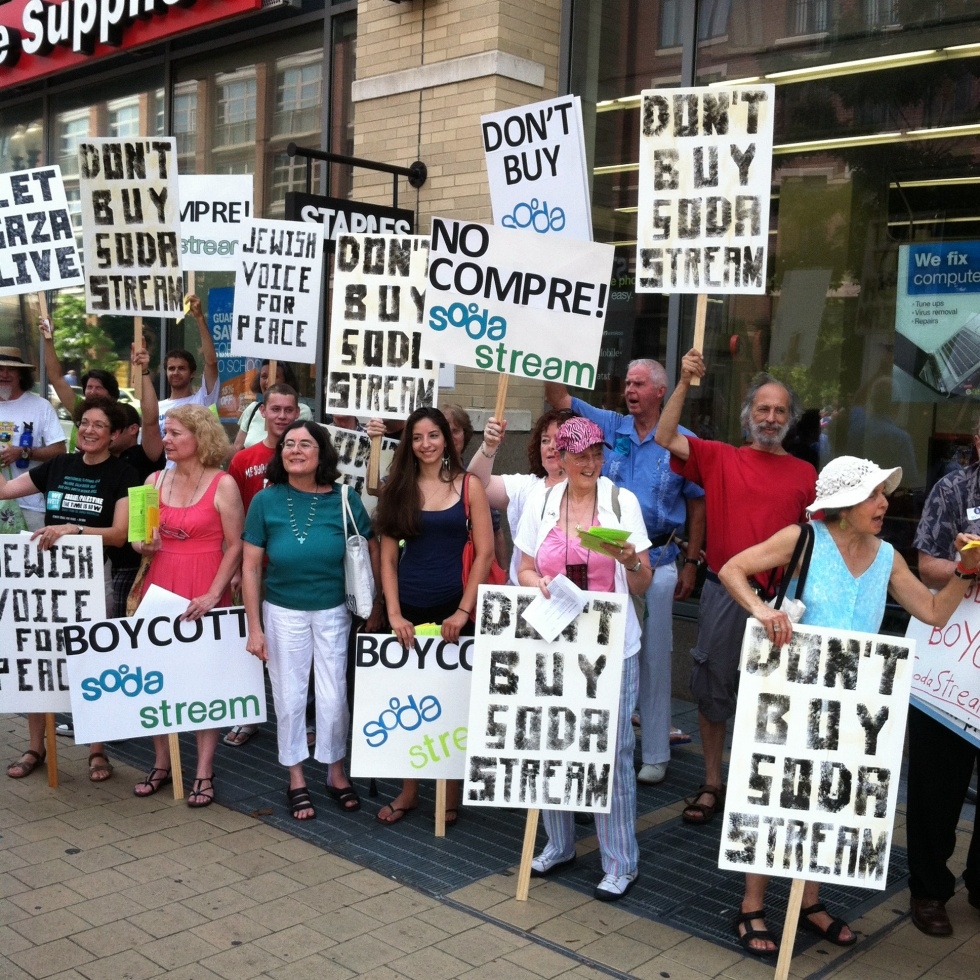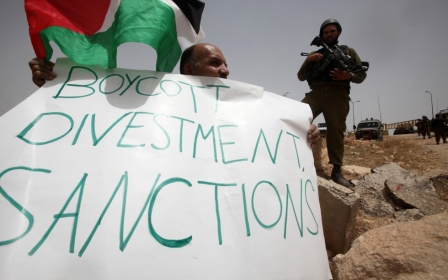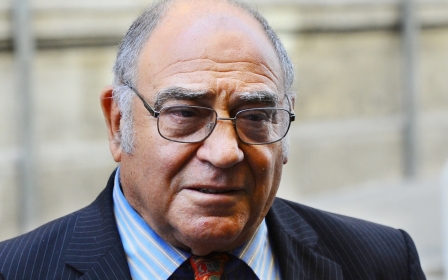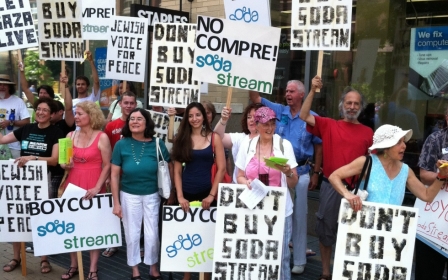Can Israel afford to continue its controversial policies?

HAIFA - In the months following Israel’s latest summer offensive on Hamas in the besieged Gaza Strip, Operation Protective Edge, the Israeli economy suffered. Some of the side effects were obvious: there was a drop in tourism, exports fell and by November 2014, the Organisation for Economic Co-Operation and Development (OECD) cut Israel’s projected economic growth for 2015 by 0.5 percent, down to 3 percent, after predicting a 3.5 percent expansion in May.
Of all the sectors of the Israeli economy, tourism - which comprises roughly 7 percent of the Israeli economy - feels the effects of conflict first. The 51-day war, understandably, discouraged the average tourist from travelling to the region for fear of rockets.
According to Ynet, the online version of Israel’s most-read daily, Yedioth Ahronoth, the tourism sector shrunk 26 percent in July as compared to the previous year. This is a substantial figure, costing Israel $566 million.
But, between July 2014 and January 2015, the tourism industry was on the rebound. Israeli daily Haaretz quoted the Israeli Central Bank as saying that overnight stays in hotels showed “some recovery”. The report went on to say that the tourism industry was recovering faster than in previous years in the aftermath of heavy conflict with Hamas or Hezbollah.
Jerusalem attacks hit tourism
Except for the month of October. The Israeli Central Bureau of Statistics posted a 33 percent drop in tourism as compared to 2013.
The situation did not improve in the following month. November was the time when tensions were at a high in Jerusalem. There were car attacks, housing demolitions, and an assassination attempt on a right-wing Israeli activist working for the right of Jews to pray in the courtyard of the al-Aqsa compound, the third holiest site in Islam and a symbol of Palestinian national identity regardless of creed.
On 18 November, there was a grizzly attack on a synagogue in Har Nof, West Jerusalem. Two Palestinians from occupied East Jerusalem attacked worshippers with a pistol, cleavers and hatchets, leaving five dead. The event drew international media attention and condemnation from world leaders.
After a calm December, the Israel Bureau of Statistics published figures showing that the overall tourism rate had dropped 4.4 percent from 2013 to 2014.
Then, in January, a mass stabbing attack took place on board a Tel Aviv bus, injuring 13. The suspect, a Palestinian from the West Bank village of Tulkarem, reportedly said that Operation Protective Edge motivated him to carry out the attack.
As long as Israel continues its policies of siege against Gaza, house raids and demolitions, Palestinian attackers will find reason to carry out these acts of violence, further discouraging tourism.
The victories of Boycott, Divestment and Sanctions
The National Palestinian Boycott, Divestment and Sanctions movement (BDS), which calls for academic, cultural and financial boycott of Israel until it complies with international law, is making headway in its stated mission.
In one of its more publicised battles, the BDS movement took on SodaStream, an Israeli company that sells water carbonation systems for homemade soft drinks.
The Israeli firm operated a factory in an illegal settlement in the occupied West Bank, and there was uproar when Scarlett Johansson, then spokeswoman for anti-poverty organisation Oxfam, was seen in an ad campaign for the soda makers.
Activists and Oxfam urged Johansson to give up her role as spokeswoman due to SodaStream’s violation of international law, but the actress instead chose to relinquish her role as Oxfam’s global ambassador and echoed the soda maker’s CEO by saying that the factory paid above-average wages for the region, and served as a model for Israeli-Palestinian co-existence.
But workers from the factory told Al-Jazeera English that there was not much difference in entry-level wages at the SodaStream factory and Palestinian businesses. The main factor that caused labourers to work in the factory, according to Ahmad Issa, a former employee of SodaStream in the occupied West Bank, was “because there are just fewer employment opportunities in [Palestinian] businesses."
In October 2014, after months of negative media attention, grassroots activism and falling stock prices, SodaStream announced that it would close its factory, citing economic reasons. In January, SodaStream stocks were at a year-long low, trading slightly above their 2010 price. Analysts attribute the low to a number of factors, including stiff competition from Coca-Cola and Keurig Green Mountain, who also produces home soda makers, but also mentioned the “scrutiny” SodaStream came under due to its factory.
In Oakland, California, activists from the Block the Boat coalition stopped the Israeli Zim Piraeus shipping vessel from docking and unloading the majority of their cargo in August. From 16 August through 19 August, the activists reportedly cost Zim Shipping, Israel’s largest shipping company and the 10th largest in the world, $50,000 every 12 hours - a total of $400,000. The success of the campaign inspired further actions on the California coast.
An activist involved with the Block the Boat coalition told Beirut-based al-Akhbar English that the “protests in Oakland are demonstrating to Israel that, at a minimum, they will pay the price of economic isolation for their repeated violations of international law and human rights.”
An uncertain future
The successful moves of the BDS movement against Israeli cargo ships are important, and came at a time when Israel’s exports were in decline. According to Israel’s Central Bank, exports - excluding ships, aircraft and diamonds - fell 3 percent.
While the grassroots BDS movement enjoys victories, these have yet to deal a serious blow to the economy of Israel. However, the notion of international sanctions becomes ever more possible.
In November, Haaretz obtained a list of possible sanctions the European Union has considered for Israel. The punitive measures under consideration included sanctions against companies working in the occupied West Bank and East Jerusalem, the internationally recognised capital of the future Palestinian state. East Jerusalem was annexed by Israel in 1967, a move unrecognised by the international community.
Any company involved in the construction of Jewish-only settlements in the E1 corridor that would link the Ma’ale Adumim settlement (the location of the now-closed SodaStream factory) with Jerusalem, effectively separating Jerusalem from the West Bank, would be eligible for sanctions. Furthermore, any Israeli politician opposed to the two-state solution would also be fair game. This could be a discouraging thought for European foreign investors, who accounted for roughly 10 percent, $1.1 billion, of foreign direct Investment in Israel, according to the OECD.
In the meantime, settlements are expanding, policies of collective punishment continue in spite of international condemnation and frustrated Palestinians continue attacks in Israeli- controlled territory.
It seems that for a true change in the status quo in the Holy Land, economics may trump politics.
- Creede Newton is an independent journalist who has reported from Israel/Palestine, Spain, Hungary and the Balkans. His work focuses on media laws, refugees and cultural protests. His writing has appeared in Al Jazeera English, Truthout, Waging Nonviolence and others.
The views expressed in this article belong to the author and do not necessarily reflect the editorial policy of Middle East Eye.
Photo: The National Palestinian Boycott, Divestment and Sanctions movement (BDS), which calls for academic, cultural and financial boycott of Israel until it complies with international law, is making headway in its stated mission.
New MEE newsletter: Jerusalem Dispatch
Sign up to get the latest insights and analysis on Israel-Palestine, alongside Turkey Unpacked and other MEE newsletters
Middle East Eye delivers independent and unrivalled coverage and analysis of the Middle East, North Africa and beyond. To learn more about republishing this content and the associated fees, please fill out this form. More about MEE can be found here.





